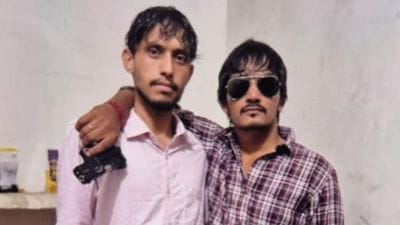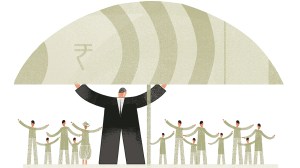Wild Swan Storms the Red Star
ELEGANT at 50, Jung Chang is almost free now of her tormented past. The first escape from the horrors of Mao’s Cultural Revolution was ...

ELEGANT at 50, Jung Chang is almost free now of her tormented past. The first escape from the horrors of Mao’s Cultural Revolution was in 1978 when she managed to go to England on a scholarship: the first such person from Sichuan, a province of 90 million. The second step was when her mother, a senior member of the Communist Party, came to visit her in London. Away from the repressive atmosphere of China, the mother spoke at last of the past, of Chang’s grandmother who was concubine to a Chinese warlord at 15; her own life growing up under Japanese occupation, the successive regimes of the Kuomintang and the Communists; the loss of faith, the casual cruelties, the inhuman torture endured by both Chang’s parents (her father was a provincial governor who criticised Mao during the Cultural Revolution—though detained for many years, he did not recant and died a sick man, in 1975).
Chang’s book, in 1991, was the first non-partyline history of Communist China through these three generations of personal history. Banned in China, Wild Swans became an overnight bestseller worldwide: more than 10 million copies in 30 languages. ‘‘It set me free from having to earn a living,’’ says Chang, smiling at the chrysanthemums at Delhi’s India International Centre. (After a PhD in Linguistics, she conducted orientation courses for China-bound diplomats at the School of Oriental and African Studies, London). Since Wild Swans, Chang and Irish-English historian husband Jon Halliday have worked for 10 years on a new biography of Mao Zedong.
Researching a life as secretive as Mao’s has taken them all over the world. ‘‘We are probably the first to have accessed Albanian archives, besides finding out many startling things in Moscow,’’ says Chang, who made her third visit this month to India, ‘‘a place I love.’’ Wild Swans does not mention the Chinese aggression of 1962. It is one of the missing pieces of history, which Chang is researching, with possible evidence of how Mao secretly worked with the Soviets, who funded the Communist Party in China.
But here’s a forgotten tidbit we might find amusing: ‘‘When Nehru met Mao for the first time in Beijing, Mao quoted from a classical Chinese poet. Mao’s own translator could not understand it. But Nehru’s Chinese translator VV Paranjpye knew it,’’ reveals Chang.
‘‘Oh, that was Ch’u Tse, a poet from before the 2nd century BCE,’’ confirms Paranjpye, a former Chinese language teacher at Delhi University. ‘‘Ch’u Tse was a prime minister of South Central China, who jumped into a well, frustrated with the state of governance. The line Mao quoted was: ‘There is no greater joy than the joy of first meeting; there is no greater sorrow than seeing a friend depart.’ Nehru fell for it, he was a good man, you know. Mao was very astute, tremendously capable, but not a good man. He had two sets of teeth, one to talk to you with and another to bite you.’’
Concurs Tashi Wangdi, the Dalai Lama’s representative in New Delhi: ‘‘His Holiness was initially impressed by Mao. But…’’ Says Chang: ‘‘Mao’s mother was Buddhist, but he gave up religion before his teens. The Dalai Lama told me that Mao actually tried to make him give up religion, too. Imagine that.’’
Ask Chang about American Edgar Snow’s famous book Red Star Over China and Chang confirms that Mao personally selected him and fed him a consummate mixture of fact and fiction.
‘‘Mao was so well-read himself, he had a huge heap of books on his bed,’’ says Chang. ‘‘While books were banned in China except for approved political tracts, Mao set up two printing presses. The print run was only five copies per book. One came to him, four were locked up.”
Meanwhile, she’s working for the publication of her book in autumn 2004 : ‘‘Mao made history. We received it. It’s time to tell the truth.’’
Photos





- 01
- 02
- 03
- 04
- 05


























